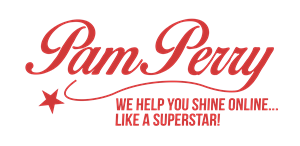
So many authors ask me all the time, “Should I self-publish?” My answer is typically, “YES!” Now, unless you have a ready-made audience anticipating your book (platform), a great agent and real connections in the book industry – you can go the traditional route. But really, first look at your goals for publishing a book.
Some people publish because they want to:
- Share their testimony
- Transform lives and be a blessing to others
- Get publicity, position themselves as an expert
- Start movements and make a difference in the world
- Teach and educate on their area of expertise
- Produce residual income (do it once and get paid forever)
- Create “back of the room” sales when go out and speak/keynote
- Develop or expand business (typically consulting, speaking for coaching)

Now all of these are noble causes and goals. But it’s best for an author to really take time and rank the importance. For instance, if you just want to earn cash fast – don’t bother with trying to go with a traditional publisher. It’s probably best to go the self-publishing route and get larger margins and use your sales skills to peddle the heck out of your book. Or if you want to be in Essence magazine or on Steve Harvey, you may want to use a hybrid (custom) publisher and get the publishing “credibility” behind you without looking like a total “DYI” author.
So here’s the deal:
➡ Traditional Publishing: Large publishing houses like Random House, Thomas Nelson typically want “star power” authors to push to market
Pros
- Prestige under the Publisher’s reputation
- Excellent product
- Work with a publishing team thru entire process
- No out of pocket costs; given an advance
- Wide Distribution
- Sell in to bookstores easier and stores promote
- Catalog and backlist sales
- More likely to get other ancillary products and licensing deals
Cons
- Need an agent; authors with no proven track record not able to get publishing deal
- New authors are not given marketing push as the other “golden goose” authors
- Long lead time – 18 to 24 months to go to market
- Small royalties typically 3.5% to 10%; must pay back advance first
- Contract is binding for life; must be certain if it’s worth it (you may own copyrights but ISBN locks them in as your publisher – not you)
➡ Self-publishing: Establish your own publishing company and you are responsible for all editorial: writing, proofreading, editing, typesetting, cover, spine & all other design services in addition to printing, distribution, sales and marketing. The author does everything a la cart – and piece it all together.
Pros
- Timing is your own
- Larger margins
- Total control of creative and entire process
- Own ISBN & total rights
Cons
- Major upfront cost $20,000+
- More likely to make “amateur” mistakes in the process
- Bookstores less likely to carry because there is no trusted track record or publisher endorsement
- Manage your own inventory, sales, fulfillment and shipping or secure a wholesales or distributor (hard to do if you’re a first time author)

➡ POD Publisher: A Print-On-Demand publisher is a way to publish your own book using back-office tools and POD systems for formatting, sales, catalog, distribution, accounting of the royalties and some even offer marketing support. Examples are iUniverse.com, LuLu, CreateSpace, IngramSpark, Outskirts.com and BookBaby.com
Pros
- Low upfront costs
- Book Distribution to online bookstores
- Quality is good
- Royalties can start at 25% and up to 70% off cover
- They take care of shipping, printing and paying royalties
Cons
- Typically used by the novice or first-time authors; low industry prestige
- Hard to get media, celebrity endorsements and partnership/bulk sales agreements
- ISBN typically in POD publisher’s name
➡ Hybrid (Subsidy or Custom) Publisher: A combination of self-publishing and traditional publishing that empowers both authors and publishers. Examples are Westbow Press, Greenleaf Book Group, Essence Publishing, Tate Publishing, Xulon Press, Infinity Publishing.
Pros
- Low cost of entry
- You own rights on everything (ISBN, Copyright)
- High quality book – many associated with major publishers
- Don’t have to figure anything out; this is all ‘done for you’
- Contracts vary but royalties 25% to 35% off cover; up to 70% for ebooks
- Wide Distribution and at trade shows (BEA, ICRS)
- Upload to all internet bookstores
- Catalog, website and other marketing support like book trailers, bookmarks
- Publishing connections into bookstore
- Some of these hybrids have NYT best sellers
- True partnership; your success is theirs
Cons
- Have their own editorial guidelines
- Production 3 to 4 months or more
- Contracts vary; need to look over carefully
- Not as much margin as self-publishing but less risk in errors
💡 Note: Average cost to print a book 5×7, 148 pages is about $2.50 to 3.50 per book; depending on print run.
Average price of book that size is $14.99 (but not less than $12.99)
Each publishing organization will workout specific details of royalties but take into consideration other factors such as the overall goal of the book, it’s positioning in the market, time spent in producing the product and creating/setting up systems.
Feeling confused about it…this video is my favorite humor relief:

[…] No, for this, you want to publish a printed book—and if you can attract the attention of a publishing house rather than going the self-publishing route, that lends more credibility. Join Peggy McColl’s program if you need […]
[…] holds most would-be authors back from publishing? It’s not a lack of writing talent. It’s definitely not a lack of knowledge. And for sure it’s not a lack of […]
[…] Pros and Cons of a Traditional Publishing House, Self-Publishing, POD Publisher, and using Hybrid Pu… […]